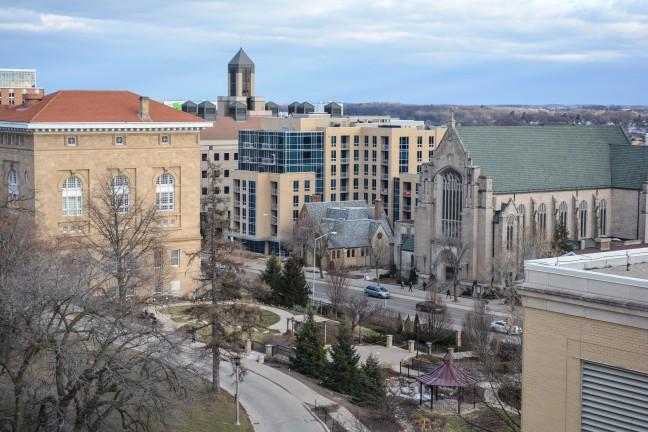A community space in south Madison enables University of Wisconsin affiliated programs to tackle issues of poverty and mental health through educational courses and informational meetings.
Celebrating a year of partnership with the UW campus and south Madison community members, the UW South Madison Partnership program has encouraged the expansion of group programming to promote learning and create career opportunities.
The partnership program’s community space opened on Park Street last February – acting as a bridge between the UW campus and south Madison community, Julissa Ventura, CUE South Madison graduate assistant through the Morgridge Center for Public Service, said.
The program has collaborated with various existing UW affiliated organizations and groups, including UW Odyssey Project and the Morgridge Institute for Research, to provide educational classes and learning opportunities to the community of south Madison, Ventura said.
Emily Auerbach, Odyssey Project director, said the community space enabled her program to offer a second class for young children — Odyssey Junior — extending its educational opportunities from adults at the poverty level, to their children.
Auerbach said the addition of the children’s classes is important because research has shown it takes a multi-generation approach to tackle issues of poverty.
“While the parents are working with us and getting instruction in Socrates, Shakespeare and Martin Luther King, their children, ages 2-18 are nearby getting help with literacy and the arts,” Auerbach said.
The space allows UW to be a true part of the community, and not an “ivory tower” ignorant to the people who live in the city that is host to the university, she said.
Though the Odyessy Project is one of the primary users of the community space, the space is also used for the Wisconsin Alzheimer’s Disease Research Center.
Fabu Carter, Wisconsin Alzheimer’s Disease Research Center spokesperson, said the space provides more accessibility for members of the south Madison community.
In addition, Carter said the partnership provides a culturally comfortable environment that accommodates the community’s needs because it is located in the middle of south Madison. Residents of the area who generally feel hesitant to go on campus can feel comfortable in an environment with UW campus affiliates to work with them.
“It brings the Wisconsin Idea into the community in a very comfortable and welcoming way,” Carter said.
Wisconsin Alzheimer’s Disease Research Center partnership with the program allows them to use the community space as a place to hold meetings, support groups, workshops and gather various research participants from the south community, Carter said.
Carter said the partnership’s space has allowed the center to grow and expand, and they hope to offer more support groups and research opportunities.
Ventura said the UW South Madison Partnership looks to keep expanding program opportunities as it heads into its second year. She hopes the program will start bringing speakers out to the community space, both from campus and beyond.
She hopes the partnership program may be able to do it once a month to take on issues community members have in south Madison and create discussions about them.
“[We will be] continuing to build relationships with partnership in the area to maximize the impact that we have in the community,” Ventura said.


